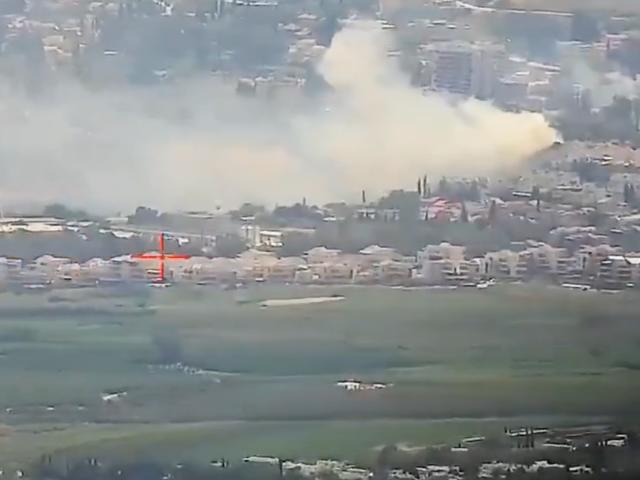In a dramatic escalation that underscores its capacity for an escalation in violence, the Iranian-sponsored terrorist organization Hezbollah unleashed a fierce barrage of "dozens" of Katyusha rockets on Israel on May 6. The rockets rained down on the Golan Heights, igniting alarm sirens across several central areas and marking a severe uptick in hostilities. Hezbollah boldly claimed it targeted the strategic "Golan division headquarters" in its communiqué to Al-Mayadeen.
The terror organization asserted that on the morning of May 6, it specifically aimed at the 210th Golan Division's Nafah base, sending a storm of Katyusha rockets hurtling towards the site. This attack is just the latest in a string of aggressive actions by Hezbollah, following a previous onslaught where 20 rockets targeted Kiryat Shmona on May 5, and another 40 projectiles were launched into northern Israel on the same day. The admission also signaled a shift in tactic which clearly shows significant uptick from Hezbollah. Prior to today, most of the projectiles fired into Israel have been anti-tank missiles and short range "Falaq" rockets. Katyushas have an increased payload and range, which shows that the Islamist group has begun to tap into their arsenal of serious missiles.
⚡️JUST IN:
— Current Report (@Currentreport1) May 5, 2024
Hezbollah launched 50 rockets towards the Golan Heights. pic.twitter.com/R8850orfKm
Hezbollah consistently frames its assaults as retaliatory responses to Israeli provocations. In this latest instance, they accuse Israel of instigating the violence by targeting the Bekaa region. This ongoing cycle of retaliation highlights Hezbollah's stated justifications for its attacks, which often mirror the geopolitical tensions in the region. Israel has struck deep into Lebanon to hit Hezbollah targets on several occassions since the Iranian proxy began firing rockets into Israel on October 8th.
The backdrop of these escalating attacks includes Iran's watchful eye over the unfolding events in Gaza, especially as Israeli officials urge civilians in eastern Rafah to evacuate, anticipating further confrontations. This scenario suggests that Iran's influence may be orchestrating an increase in militant activities via its proxies.
❗Hezbollah:
— Slaar-as-Sani (@R3bellionRound2) May 6, 2024
Scenes from the operation targeting Kiryat Shmona with Katyusha and Falaq missiles. pic.twitter.com/mKAq5nVl99
Iran's role as an instigator is not confined to Lebanon but extends across the region, including attempts to mobilize factions in Iraq and Bahrain. Yet, the authenticity of these operations often remains shrouded in ambiguity, primarily because the pro-Iranian claims lack substantive evidence. For example, the terrorist group alleged to operate in Bahrain, which is a signatory to the Abraham Accords along with the UAE, is unlikely to be active given Bahrain's stringent security measures and political stance.
Nevertheless, Hezbollah's assertions stand in stark contrast to other Iranian-backed claims. Known for its significant arsenal and operational capacity, Hezbollah's declarations of attacks are typically reliable and indicative of its significant threat level, unlike the often unsubstantiated claims of other groups. This not only reflects the group's militaristic capabilities but also the broader, perilous implications of Iranian proxy warfare in the region.


